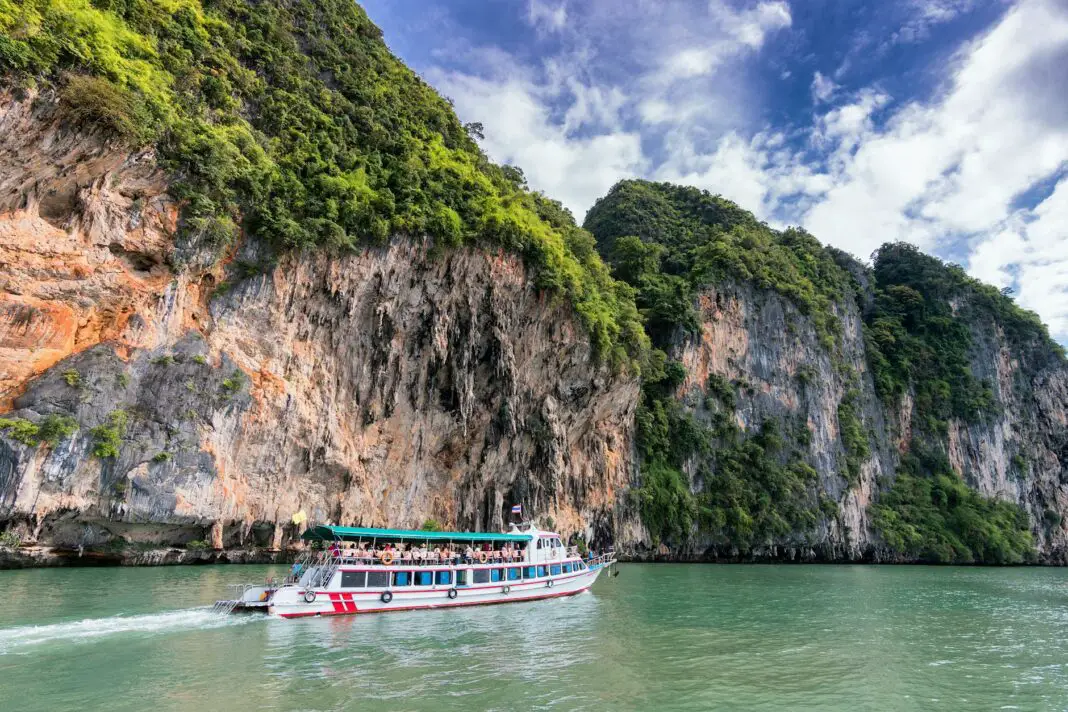Thailand, known for its stunning beaches and vibrant culture, is increasingly becoming a leader in eco-tourism. This beautiful Southeast Asian nation offers a plethora of eco-friendly adventures that thrill both the adventurous traveler and the eco-conscious visitor. In this blog post, we will explore some of Thailand’s top eco-tourism success stories, highlighting how the country is blending sustainable practices with tourism to create unforgettable experiences. From breathtaking national parks to communities engaging in conservation efforts, Thailand shows us that travel can be both enjoyable and responsible.
Whether you’re a seasoned traveler or planning your first trip to Thailand, understanding the eco-tourism landscape can greatly enhance your journey. By choosing eco-friendly tours and supporting local communities, your trip can leave a positive impact while allowing you to enjoy the country’s natural beauty. Discover, learn, and immerse yourself in the success stories that make Thailand a standout destination for eco-tourism.
Table of Contents
- The Emerald Triangle Conservation
- Chiang Mai’s Sustainable Community Projects
- Koh Tao Marine Conservation
- Khao Sok National Park Eco-lodges
- Community-based Tourism in Pai
The Emerald Triangle Conservation
The Emerald Triangle, encompassing areas of northern Thailand near the borders of Laos and Myanmar, has become a shining example of how eco-tourism can promote conservation while benefiting local communities. This region’s stunning landscapes and rich biodiversity have led to numerous initiatives aimed at protecting its natural resources. For example, local farmers have adopted sustainable agricultural practices that not only protect the environment but also improve their livelihoods. By participating in agro-tourism, visitors can experience the majestic beauty of the hills while learning about the importance of sustainable farming, contributing to both the economy and ecosystem health.
This area is also home to various wildlife conservation projects, where travelers can support efforts to preserve endangered species through donations and volunteering. By immersing themselves in the culture and work of local conservationists, visitors can truly appreciate the balance between economic development and environmental stewardship, creating lifelong memories while making a difference. The Emerald Triangle’s success story is an encouraging reminder that visitors can play a crucial role in the sustainability of Thailand’s natural wonders.
Chiang Mai’s Sustainable Community Projects
Chiang Mai, a cultural jewel in Thailand’s mountainous region, has embraced eco-tourism through innovative sustainable community projects. This city is not just about the ancient temples and artisan markets but also serves as a hub for responsible travel initiatives. Local organizations are actively engaging tourists in community-based tourism that empowers residents while preserving cultural heritage.
One such initiative invites travelers to stay with local families, partake in traditional cooking classes, or join craft workshops to learn about local customs and crafts. These experiences are not only enriching for visitors but also elevate the economic status of the community by creating new revenue streams without compromising their traditions. Visitors can enjoy authentic Thai experiences while knowing their contributions support the livelihoods of the people they meet. This symbiotic relationship between tourists and locals fosters a greater sense of connection and responsibility towards the environment and culture. It is a remarkable example of how eco-tourism can transcend mere sightseeing and immerse travelers in transformative experiences.
Koh Tao Marine Conservation
Known for its shimmering turquoise waters and vibrant marine life, Koh Tao has become a leader in marine conservation efforts. The island has launched several initiatives aimed at protecting its underwater ecosystem while promoting responsible diving and snorkeling. Tour operators are now implementing sustainable practices with a focus on educating visitors about the fragile coral reefs and the importance of marine biodiversity.
One remarkable project is the Coral Restoration Program, where divers can participate in hands-on replanting of coral, learning about reef health and marine conservation. This way, visitors engage directly with preserving the natural beauty they come to admire. Additionally, by adopting eco-friendly diving practices and supporting local businesses dedicated to conservation, tourists positively impact the island’s ecology. Koh Tao serves as a prime example of how eco-tourism can harmoniously coexist with adventure, ensuring the stunning marine landscapes continue to flourish for generations.
Khao Sok National Park Eco-lodges
Khao Sok National Park is a paradise of lush jungles, limestone cliffs, and diverse wildlife. Recognizing the importance of eco-tourism, several eco-lodges have sprung up around this national treasure, prioritizing sustainability while providing visitors with immersive nature experiences. These lodges employ local renewable materials and utilize eco-friendly practices, ensuring minimal environmental impact while enhancing visitor comfort.
Guests can explore the untamed beauty of Khao Sok through guided nature treks, canoeing on tranquil lakes, or participating in wildlife observation tours. Such activities foster a deeper understanding and appreciation for the natural world while supporting local conservation efforts. Not only do these eco-lodges enhance the visitor experience, but they set a benchmark for responsible hospitality in Thailand. The success of eco-lodges in Khao Sok emphasizes how luxury can coexist with sustainability, creating lasting memories without compromising the rich ecological landscape.
Community-based Tourism in Pai
Pai, a quaint town nestled in the mountains of Northern Thailand, has emerged as a model for community-based tourism. With its serene landscapes and vibrant culture, Pai offers a unique blend of natural beauty and opportunities to engage with local traditions. The community has embraced tourism while promoting preservation and respect for their cultural identity. Tourists can stay with local families, participate in traditional ceremonies, and learn about the unique ethnic groups that inhabit the area.
This immersive approach not only enriches the visitor experience but also ensures that the economic benefits of tourism are felt by the host community. Local guides play a pivotal role in sharing authentic stories, allowing visitors to connect with the culture on a deeper level. Moreover, by choosing community-based accommodations and experiences, travelers can directly influence local development, encouraging the preservation of the area’s natural and cultural heritage. Pai’s commitment to community-based tourism showcases how responsible travel can empower locals while offering travelers meaningful connections to the destinations they cherish.
Embrace Thailand’s Eco-Tourism Journey
Traveling to Thailand presents an incredible opportunity to explore a wondrous land that balances breathtaking nature with sustainable practices. As eco-tourism continues to flourish, visitors find themselves playing a vital role in the conservation of Thailand’s rich environments and unique cultures. By choosing eco-friendly tours and supporting local communities, your journey can leave a long-lasting positive impact, ensuring that future generations can experience the same beauty that captivates you today. Supporting eco-tourism not only enhances your adventures but transforms the way you interact with the world, cultivating a deeper respect and appreciation for our planet.
FAQs about Eco-Tourism in Thailand
- What is eco-tourism? Eco-tourism refers to responsible travel that conserves the environment and improves the well-being of local people. It emphasizes sustainability and promotes awareness of ecological and cultural diversity.
- How can I travel sustainably in Thailand? You can travel sustainably by choosing eco-friendly accommodations, participating in community-based tourism, and supporting local businesses. Additionally, being mindful of your environmental impact by reducing waste and offsetting carbon emissions can be beneficial.
- What are some eco-friendly activities to do in Thailand? Some eco-friendly activities include hiking and nature walks, wildlife observation, river kayaking, and volunteering for conservation projects. Engaging with local communities through traditional experiences and workshops also highlights sustainable tourism.
- Why should I consider eco-tourism? Eco-tourism allows you to support conservation efforts, learn about local cultures, and contribute positively to the environment. It enriches your travel experience while ensuring that your actions support the places you visit.
Image Credit: Pexels





